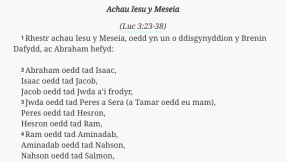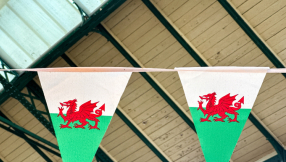It was not so much evangelical Christians as "notional" Christians who won Donald Trump the race to the White House, a new study shows.
Key to Trump's victory was a swing by notional Christians from supporting the Democratic candidate to backing the Republican.
Notional Christians are defined as Christians who have not made "a personal commitment to Jesus Christ that is still important in their life today" and don't believe that when they die they will go to Heaven because they have confessed their sins and accepted Jesus Christ as their Saviour.
Research by Barna shows that notional Christians have supported the Democratic candidate in every election since 1996, giving them 58 per cent of their votes.
But this year as Hillary Clinton took just 47 per cent of their votes while Trump won 49 per cent.
"Given that notionals are by far the largest of the five faith segments, that transition was a game changer for the Republicans," says Barna.
In addition, there was a strong swing late in the day from notional Christians towards Trump.
Notionals still preferred Clinton by 12 points in September, but wound up siding with Trump by a two-point differential. "That represents a 14-point gain in the final two months among the numerically-largest pool of religious voters," says Barna.
Barna also notes: "Another shocking twist during the last two months was the shift of allegiance to Trump among atheists and agnostics. Trump gained 10 percentage points on Clinton among this group."
This was just one aspect of the significant role played by religion during the election, according to Barna. Many issues were faith-related and voter turnout by religious believers was high. Atheists and other people of no faith were the least likely to vote.
Evangelicals provided 10 million votes, non-evangelical born again voters produced 33 million and notional Christians delivered 58 million.
Barna reports that nearly four out of five evangelicals voted for Trump.
Among non-Christians – atheists and people of other faiths – most preferred Clinton. It was also the first election in 20 years in which the Catholic vote was not won by the Democratic candidate.
Researcher George Barna, founder, former owner and currently special analyst for the company's 2016 election polling, said: "Voters who considered themselves to be Christian were more likely to vote for Trump than Clinton. Those who were not associated with the Christian faith were overwhelmingly behind Clinton.
"Each of the three Christian segments – evangelicals, non-evangelical born agains, and notional Christians – went with Trump. Both of the non-Christian segments – those associated with other faiths as well as the sceptics – were in Clinton's camp. Just as the candidates displayed vastly different political orientations, the voters who lined up behind each of them reflected many of those same differences."
The role of faith in this election was inescapable, he said. "Like it or not, the importance of peoples' faith was front and centre in this election."













